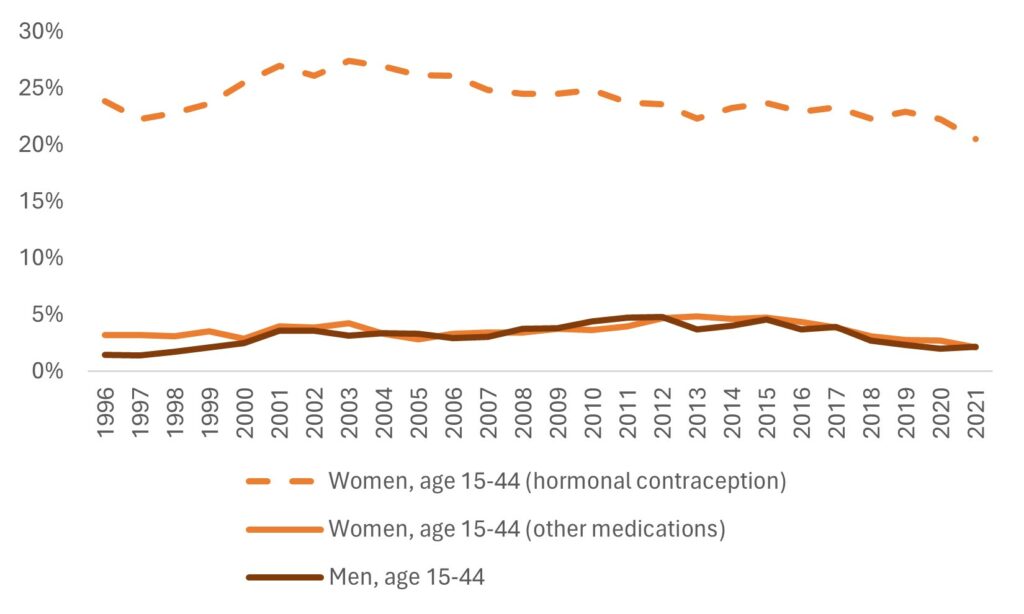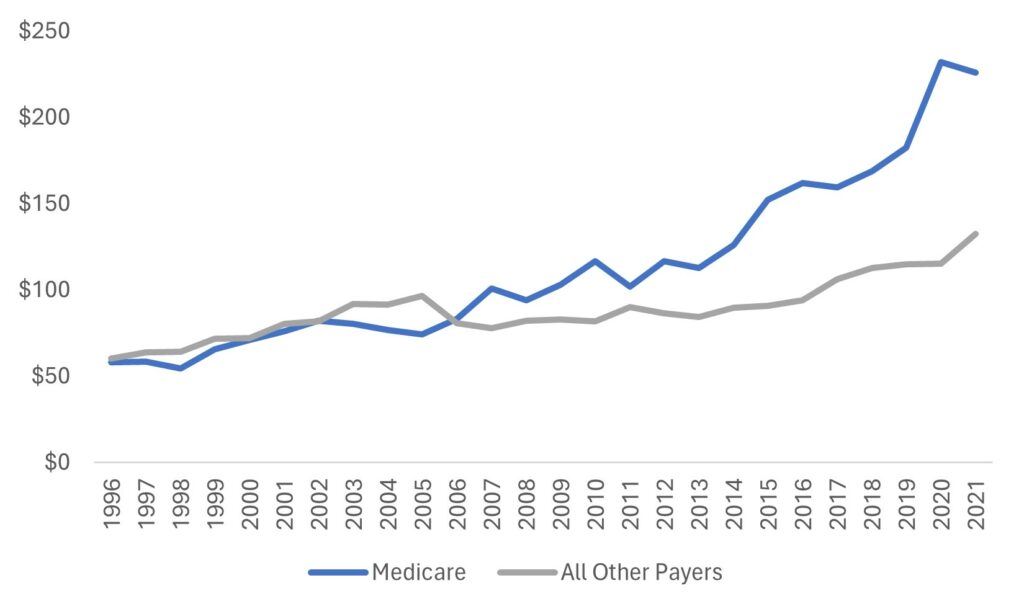By Julia A. Rivera Drew
The Household Component of the Medical Expenditure Panel Survey (MEPS), administered by the Agency for Healthcare Research and Quality (AHRQ), is a short panel survey collecting information for a nationally representative sample of the civilian, noninstitutionalized population. Since 1996, the MEPS has collected information on demographic and socioeconomic characteristics; health status; medical conditions; and health care access, utilization, and expenditures.
Based on information provided by a family respondent about each family member at each interview, AHRQ produces a dataset of all reported fills of prescribed medicines purchased by family members during the calendar year (including refills). For example, if a prescription was filled monthly, there would be 12 records for that specific prescribed medicine (DRUGID) in the annual file. The prescribed medicines data includes information such as the medication name (RXNAME), national drug code (RXNDC), therapeutic classification (MULTC1), when the person began taking the medication (RXBEGMM and RXBEGYR), amounts paid (RXFEXPTOT), and source of payment (RXFEXPSRC).
IPUMS MEPS provides a harmonized and integrated version of the MEPS Household Component data, including data from the prescribed medicines files.
What can I do with the MEPS prescribed medicines data?
The MEPS prescribed medicines data can be used to support investigations of prescription drug utilization and expenditures over time. In terms of expenditures, the data enable researchers to generate estimates of how much money was spent on average per person per prescription medication fill (both within the interview round and the calendar year) or to generate estimates of the total expenditures per person on prescription medications.
Below, we include two illustrations of the types of analyses one can conduct using the harmonized MEPS prescribed medicines data from IPUMS. One example is the proportion of adults aged 15-44 who purchased at least one fill of a prescription medication contraindicated in pregnancy, over time, and by gender (see Figure 1). Prescription medications contraindicated in pregnancy are those demonstrated to pose serious human fetal risk during pregnancy and where the risks of the drug clearly outweigh the potential benefits (a value of PREGCAT=X, see the PREGCAT variable description for more information). The majority of medications taken by women aged 15-44 contraindicated in pregnancy are hormonal contraceptives (MULTC1=97 with drug names (RXNAME) such as “Nuvaring” and “Ortho Evra”).
Figure 1. Proportion of Adults Age 15-44 who Purchased at Least One Prescribed Medication Contraindicated in Pregnancy by Gender, 1996-2021
Another example of the types of analysis that can be supported by the prescribed medicine data is displayed in Figure 2, which provides the trend in average prescribed medicine expenditures paid by Medicare per prescribed medication fill from 1996-2021.
Figure 2. Average Expenditure per Prescribed Medication Fill (2021 dollars) by Whether Medicare Was the Payer, 1996-2021*
*For expenditures of $1 or more.
I’m interested, how do I get started?
Check out our user note describing how the MEPS prescribed medicines data are offered through IPUMS, and discover what prescribed medicines variables are available from IPUMS MEPS by browsing the list of RX Medicines variables. If you wish to make an extract using prescribed medicines data, you will need to click the “Change Data Structure” button and select the “Hierarchical” option:


For more information about MEPS and the MEPS prescribed medicines data, check out our user guide and reach out to us at ipums@umn.edu with questions.






